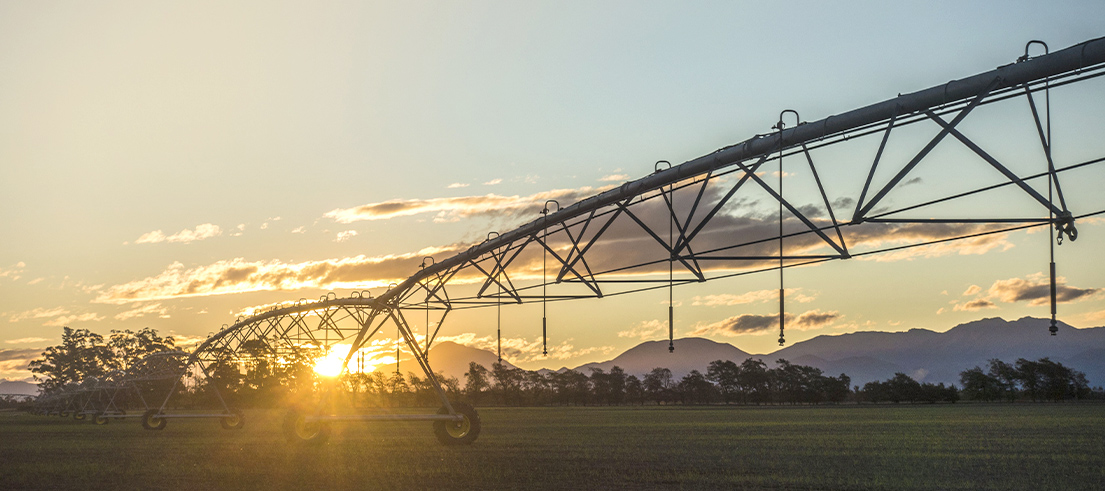
Mid Canterbury irrigation schemes’ consent renewals
Earlier this year, several media stories focused on Mayfield Hinds Valetta Irrigation Scheme’s application for renewal of its consent. This was the first of three schemes applying for similar consent renewals in mid Canterbury – the others were Ashburton Lyndhurst Irrigation Limited and Barrhill Chertsey Irrigation Limited.
On April 21, the independent hearing commissioner released the decision to grant the application, subject to conditions.
In summary, the consent is limited to a term of 10 years and has the following requirements:
- a 15% reduction in nitrogen losses from a baseline of good management practice by 2025 and 25% by 2030, including a legally binding requirement on shareholders to achieve these reductions as part of their water supply agreement with the scheme;
- farmers managed by the scheme must have comprehensive and audited farm environment plans;
- the scheme must monitor ground and surface water quality to ensure no further deterioration, and if deterioration is detected to implement a remediation and response plan to further reduce nitrogen inputs;
- if any remediation and response plan fails to achieve improvements, the Council may review the consent; and
- the scheme must protect community drinking water supplies.
To quote the decision: "This consent is granted on the basis that the significant adverse cumulative effects on the receiving environment will be reduced and there will be measurable environmental improvements within the consent term. It also gives the Applicant sufficient time to demonstrate that land use practices can change to significantly reduce nutrient inputs and to address environmental degradation. It is a significant step in the right direction and it is now up to the Applicant to demonstrate that the necessary reductions can be made and are sufficient to result in environmental improvements. I consider this will be challenging, but achievable."
On June 6, the independent hearing commissioner released their decision to grant the application, subject to conditions.
In summary, the consent is limited to a term of 10 years and has the following requirements:
- a 10% reduction in nitrogen losses from a baseline of good management practice by 2025 and 20% by 2030, including a legally binding requirement on shareholders to achieve these reductions as part of their water supply agreement with the scheme;
- farmers managed by the scheme must have comprehensive and audited farm environment plans;
- the scheme must monitor ground and surface water quality to ensure no further deterioration, and if deterioration is detected to implement a remediation and response plan to further reduce nitrogen inputs;
- if any remediation and response plan fails to achieve improvements, the Council may review the consent; and
- the scheme must protect community drinking water supplies.
On September 20, the independent hearing commissioner released their decision to grant Barrhill Chertsey Irrigation Limited two applications, one for the Hekeao Hinds Plains area, and one for the Ashburton-Rakaia area, subject to conditions.
In summary, the consents are limited to a term of 10 years and have the following requirements:
- a 15% reduction in nitrogen losses from a baseline of good management practice by 2025 and 25% in the Hekeao Hinds Plains area and 30% in the Ashburton-Rakaia area by 2030. This includes a legally binding requirement on shareholders to achieve these reductions as part of their water supply agreement with the scheme;
- farmers managed by the scheme must have comprehensive and audited farm environment plans;
the scheme must monitor ground and surface water quality to ensure no further deterioration, and if deterioration is detected to implement a remediation and response plan to further reduce nitrogen inputs; - if any remediation and response plan fails to achieve improvements, Environment Canterbury may review the consent; and
- the scheme must protect community drinking water supplies.
Why weren’t these applications notified?
The Canterbury Land and Water Regional Plan (LWRP), which was developed collaboratively with our communities and proceeded through the full statutory planning process (including appeals to the High Court), prevented notification of the application. The exception to that preclusion is in relation to effects on the Ngāi Tahu Statutory Acknowledgement (under the Ngāi Tahu Claims Settlement Act 1998) on the Hakatere / Ashburton River.
Notification of application to the wider public was therefore unavailable to Environment Canterbury, but they were notified to Ngāi Tahu due to the potential adverse effects on the Hakatere / Ashburton River due to the Statutory Acknowledgement.
These applications were therefore notified to the extent legally possible. Further information and documentation, including the s42A Officer’s Report, which set out the terms on which Environment Canterbury is process consent application, are available on the consent search web page under the ‘Related Info’ tab.
The consenting process
When a resource consent application is received by Environment Canterbury we must process it in accordance with the Resource Management Act 1991 including consideration of the effects of a proposal. As part of this process, we must consider whether public notification is required under Section 95A of the Resource Management Act.
In situations where notification is specifically precluded (as was the case when the notification decision on these applications was made), we are unable to notify the application on the basis of adverse environmental effects. Read more about the notification process.
